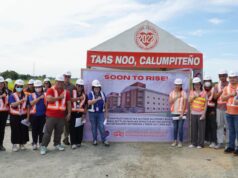DOH regional epidemiologist Dr. Jesse Fantone noted a 50 percent decrease in dengue cases in Central Luzon since the first of three-part dengue vaccine, known as Dengvaxia, were administered to over 200,000 children mostly aged 10 years in public elementary schools in the seven provinces in the region.
The vaccine was developed by Sanofi Pasteur and was given funding worth P3.2 billion by the past Aquino government for massive implementation involving Grade 4 pupils in public schools.
In a report dated last Jan. 11 on the second round of vaccinations involving 136,748 children, the DOH Regional Epidemiology and Surveillance Unit (RESU) here noted one death after being vaccinated in Nueva Ecija.
In another report dated last Feb. 27 involving another 175,778 pupils, RESU noted another two deaths also in Nueva Ecija and another in Zambales.
But Fantone said a thorough study of the cases concluded that the deaths were not as a result of the dengue vaccine, but of other unrelated factors. It was merely coincidental that they died after getting the vaccines, he stressed.
But the RESU report admitted “top three most common reactions” to the vaccine, namely, fever, headache and dizziness.
In the January report, RESU reported 123 pupils reporting adverse eff ects, while in the February report, 202 pupils complained of such reactions to the vaccine.
Dr. Anthony Leachon of the Philippine College of Physicians (PCP), however, cited a study by a group of scientists and published in Science magazine, indicating that the dengue vaccine may expose those inoculated to worse strains of dengue and increase their risk of hospitalization.
Fantone said, however, that the effectiveness of the vaccines would be ascertained in 2019 which is expected to be the peak season of dengue in a cycle of three years. “If dengue doesn’t peak that year, we can conclude the vaccine really did its work,” he said




